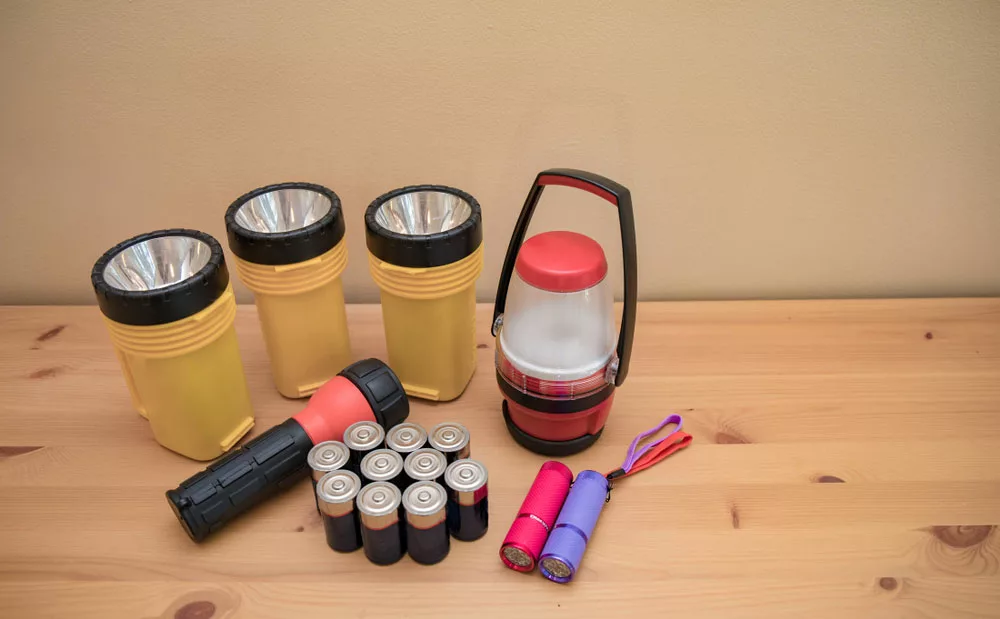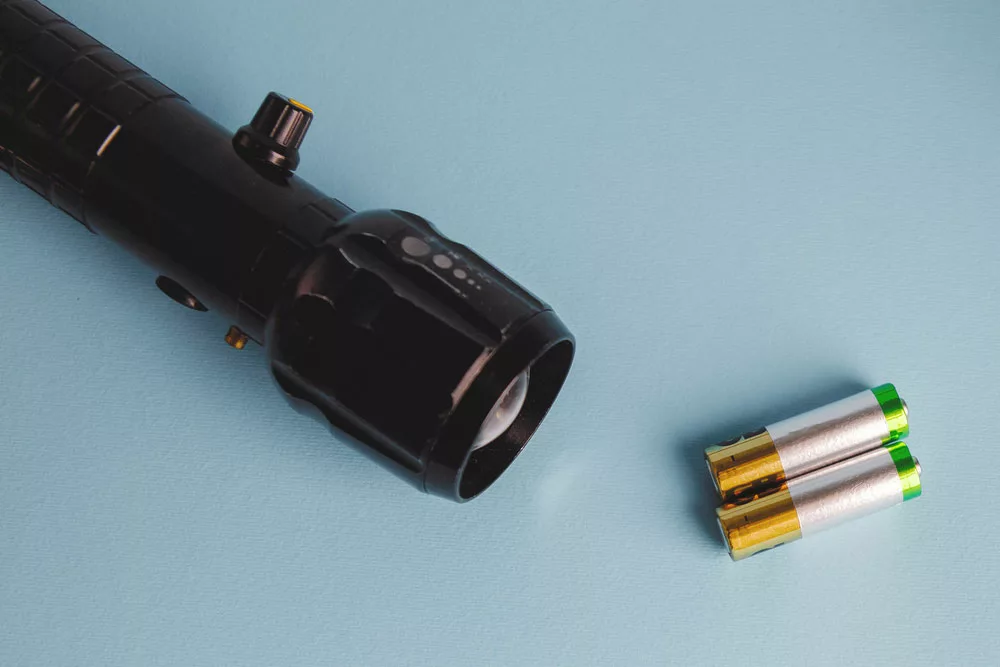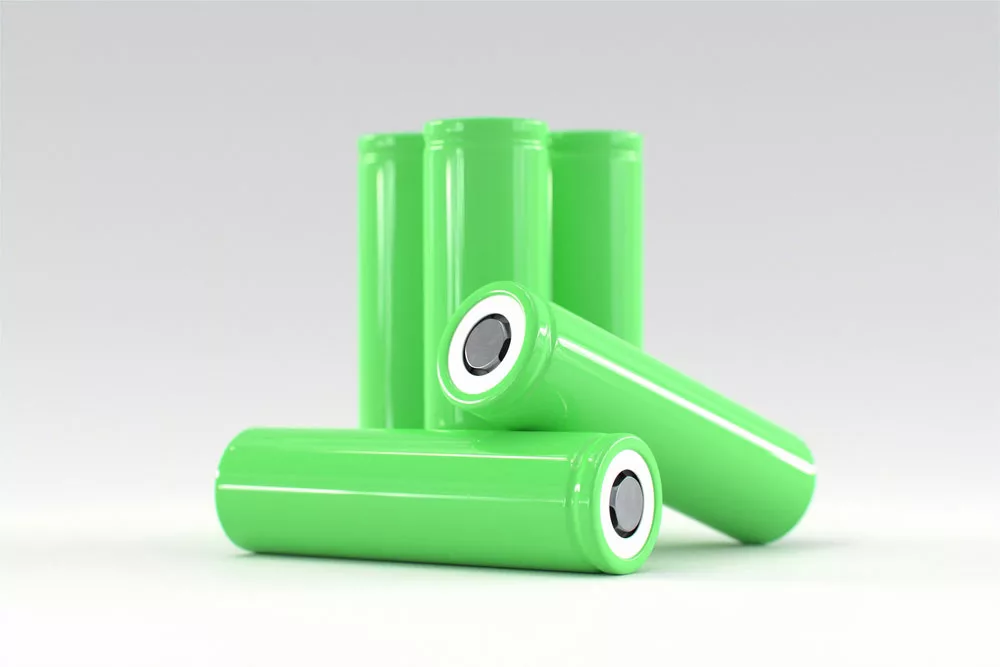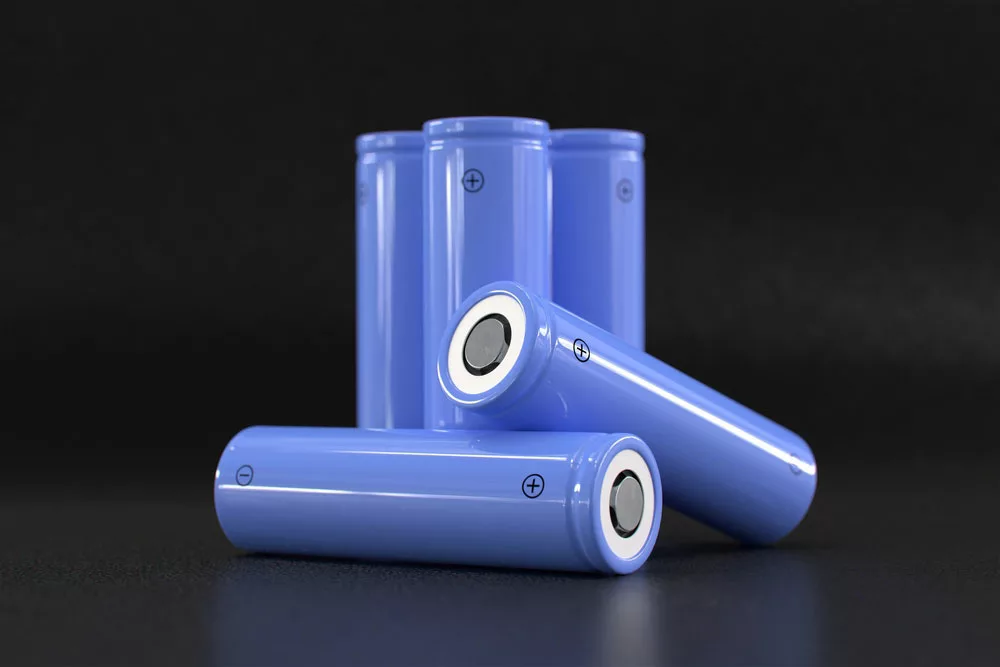Flashlights are essential accessories, but choosing batteries for them is even more crucial. They can increase your flashlight’s use and ensure it runs smoothly at critical moments. But how do you know the best batteries for flashlights?
With various battery types in the market, deciding which is best may take time and effort. And not all batteries are the same—you may use some for extended periods, while others won’t last a week.
This article will serve as a guide showing how to choose the best batteries for your flashlight.
Are you ready? Let’s go!
Are Lithium Batteries the Best for Flashlights?

Multiple flashlights with batteries
Lithium batteries are one of the best batteries you can get for flashlights. They provide high-energy-density performance, which gives them an edge over other batteries. In addition to durable designs, lithium batteries have many other benefits.
Extended Run Times
Lithium batteries usually last longer than other batteries, especially when properly cared for. Depending on usage, you can expect them to last up to 2 – 3 years.
Higher Voltage Supply
Lithium batteries are excellent at holding and discharging energy. Although most manufacturers advertise these batteries as 3.6V or 3.7V, they can dish up to 4.2V after a full charge.
Due to the slightly higher voltage supply and lower internal resistance, lithium batteries will allow more current flow to the bulb in a flashlight, producing more illumination.
However, once the voltage reduces and goes below the advertised threshold, the light generated will be similar to other batteries.
Low Self-Discharge
Batteries with high-self discharge always translate to a lower life expectancy. A battery’s self-discharge is a chemical reaction that depends on how you store them and the charging state during storage.
Storing and maintaining lithium batteries properly will enable longer self-life expectancy because they naturally have low-self discharging features.
Rechargeable
While lithium batteries are more expensive than other variants, they come with one appealing quirk rechargeability. However, how you store them will determine the number of times you can charge lithium batteries. How you use them in your device and charge them will also influence this benefit.
Shape and Size
Lithium batteries also offer various shapes and sizes, depending on your flashlight type. Manufacturers identify lithium battery sizes according to numbers instead of traditional AA, AAA, C, and D.
Lithium battery sizes include 14500, 16340, 18650, and 26650.
Battery Protection
Some flashlights have lithium battery protection, including over-discharge, overload, and overheat safety guards. In addition, battery protection also helps prolong battery life.
Low-Temperature Resistance
Lithium batteries can operate in extremely cold temperatures ranging from minus 4°F to 140°F.
What Other Batteries Work in Flashlights?

Flashlight with two batteries
Although lithium and alkaline are the most common batteries used in flashlights, you can purchase other battery types. Remember that some devices may require specific batteries for various applications. We can divide other battery types into rechargeable, non-rechargeable, 1.5v, and 3 volts.
Rechargeable Batteries

Green batteries
As mentioned earlier, rechargeable batteries are incredibly cost-effective when you charge and store them properly. More importantly, most flashlights often use AA and AAA rechargeable battery sizes. Plus, you can purchase lithium or alkaline types.
Non-rechargeable Batteries
In contrast to their rechargeable counterparts, non-rechargeable batteries are one-time-use items. Therefore, they will become useless and empty once they run out of charge.
However, non-rechargeable batteries are cheaper and ideal for small-powered devices. But they last less time than rechargeable models.
In addition, you can throw them away with your regular trash or send them back to your manufacturer for recycling.
1.5 Volts

Blue batteries
These are the most widespread batteries you can get on the market. Usually, they have tags like AAA, AA, C, and D.
Interestingly, you can find 1.5v batteries in various devices, including flashlights. In addition, you can call primary non-rechargeable batteries alkaline 1.5v.
3-Volts
3-volt batteries are well-known as ‘coin batteries.’ Although these types are perfect for LED flashlights and other low-temperature applications, you can find CR123A batteries in other household appliances.
Some 3v batteries come in classic cylindrical shapes like AAA and AA batteries.
Differences between Alkaline and Lithium Batteries
Let’s look at alkaline and lithium batteries’ strong and weak points.
Alkaline
Manufacturers often make alkaline batteries from manganese, graphite, steel, potassium, and zinc. Unfortunately, these batteries can’t power high-output flashlights. However, they’re perfect for models that don’t need high-energy output.
Lithium
On the other hand, manufacturers produce these batteries from lithium and carbon elements. Interestingly, they’re lighter than alkaline variants and are ideal for flashlights with lightweight designs.
Lithium batteries also have long shelf-lives, making them compatible with flashlights with less operating times. In addition, lithium batteries are great options for high-performance flashlights.
Rounding Up
You have two choices when it comes to batteries for flashlights. First, you can select lithium or alkaline. Then, interestingly, you can dive into various sizes, shapes, and features.
Most batteries also fall into rechargeable or non-rechargeable categories. Although lithium batteries are expensive, they can endure harsher temperatures and last longer than alkaline variants.
Lithium batteries are suitable for tactical and lightweight flashlights, while alkaline batteries are great choices for small output devices.
Do you have any questions? You can contact us, and we’ll be happy to help.
